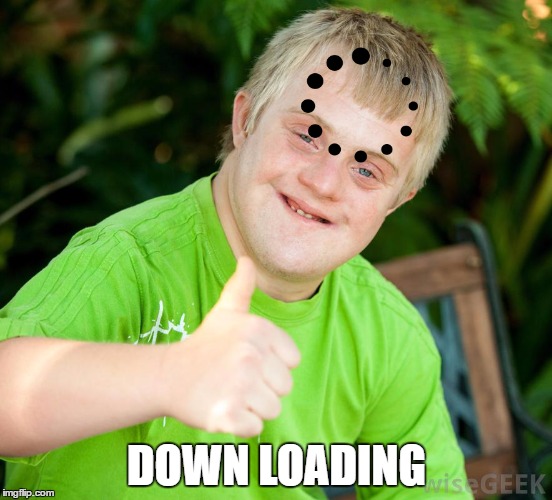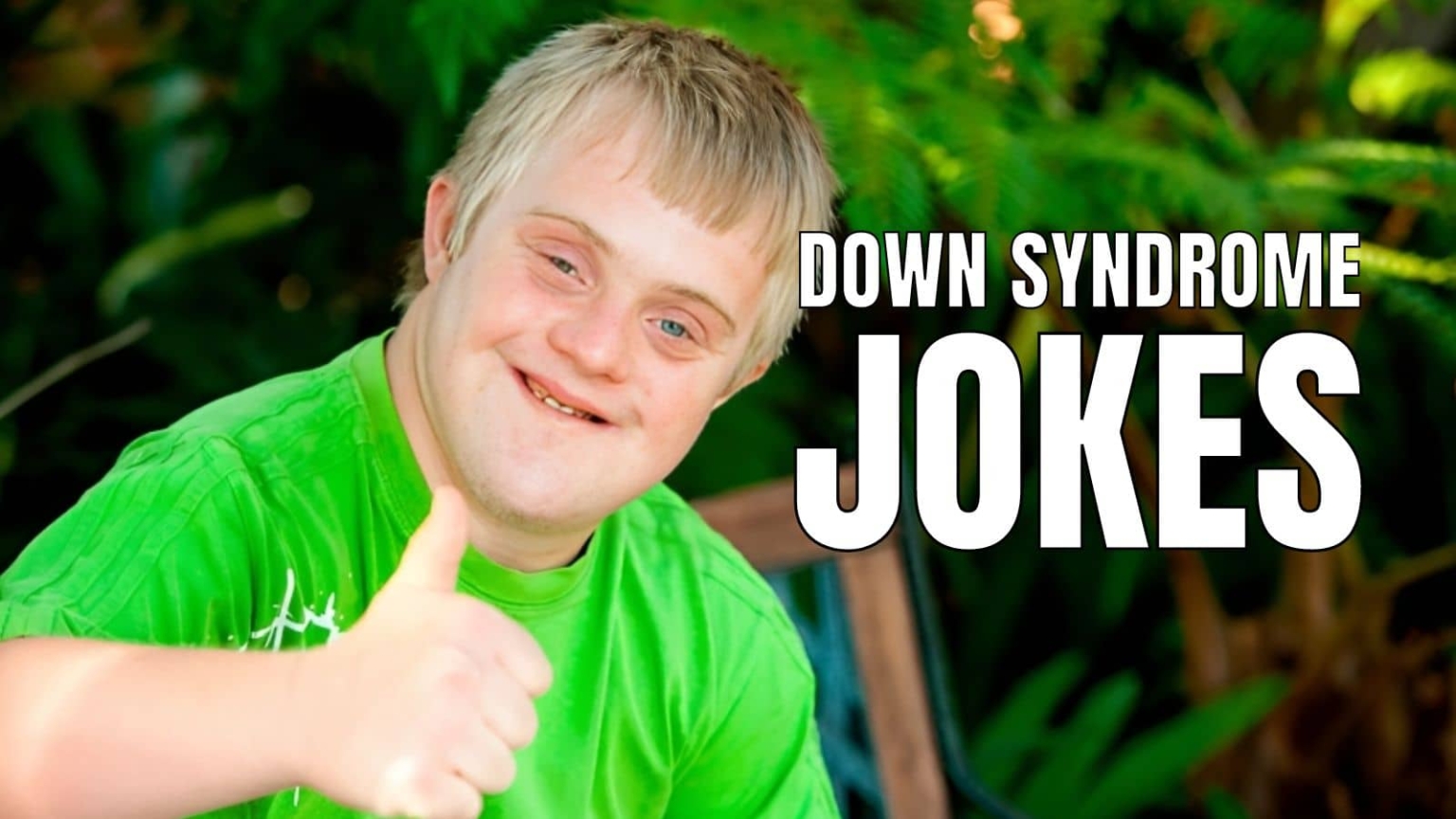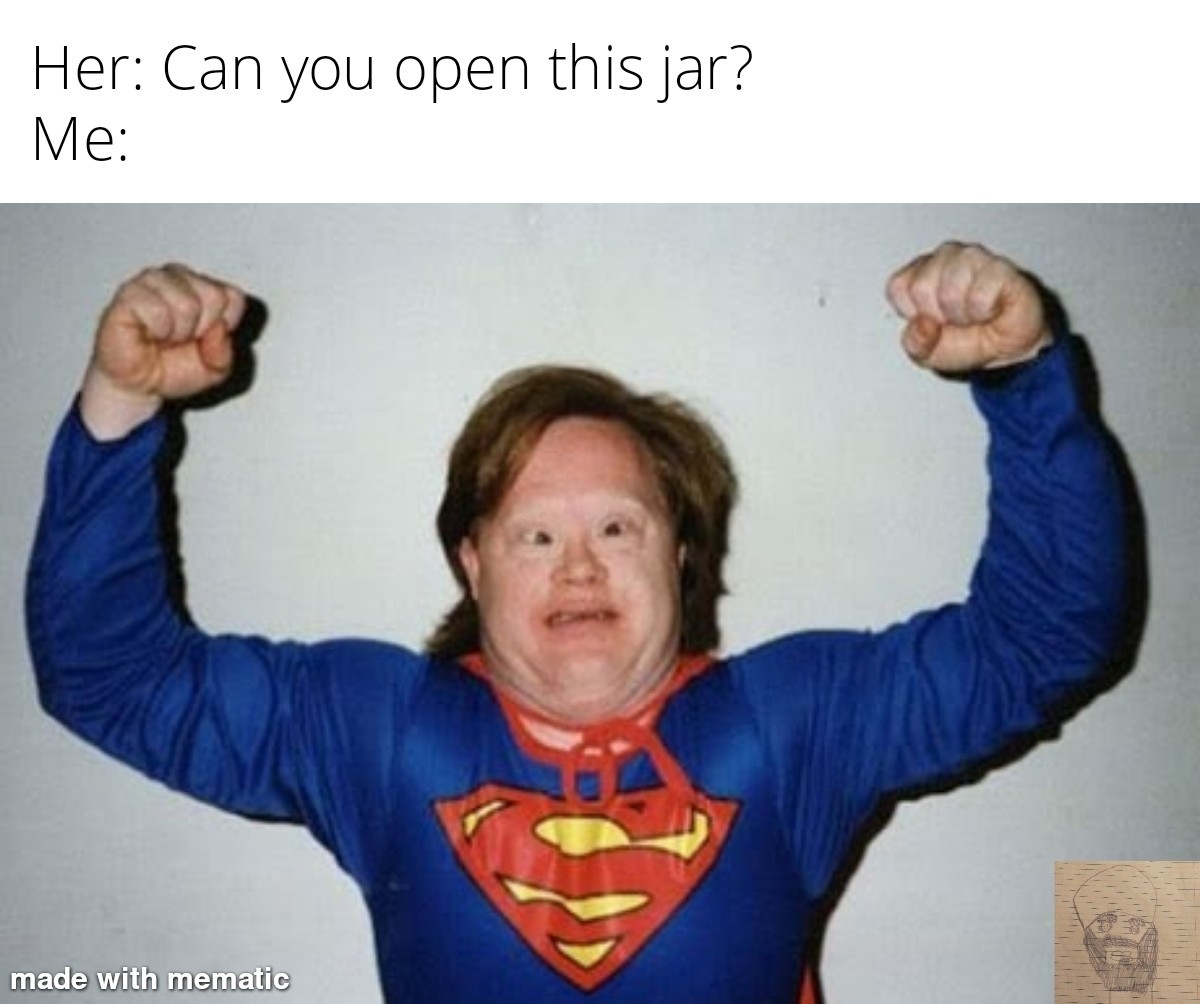Is the internet's obsession with Down syndrome memes a reflection of our times, or a descent into something darker? The proliferation of these memes, often insensitive and sometimes outright offensive, raises serious questions about how we engage with disability and humor in the digital age.
The online world, a realm where information spreads at lightning speed and humor knows few boundaries, has recently seen a surge in content centered around Down syndrome. From humorous GIFs to elaborate meme templates, the topic is trending, sparking both laughter and controversy. This phenomenon, fueled by social media platforms, presents a complex picture of how we perceive and interact with individuals with disabilities, blurring the lines between satire, education, and potentially harmful stereotypes. The question isnt whether these memes exist they do, in abundance but rather, what they say about us. Are we laughing at, or with, those at the heart of these jokes?
| Category | Details |
|---|---|
| Definition | Down syndrome, also known as Trisomy 21, is a genetic disorder caused by the presence of all or part of a third copy of chromosome 21. |
| Cause | The extra copy of chromosome 21 leads to changes in development and physical features. |
| Physical Characteristics | Common features include a flattened face, upward slanting eyes, a short neck, and a single crease across the palm of the hand. |
| Cognitive Development | Individuals with Down syndrome often experience intellectual disability, which can range from mild to severe. |
| Health Concerns | Increased risk of certain health problems, such as heart defects, respiratory issues, and thyroid disorders. |
| Treatment | There is no cure for Down syndrome, but various therapies and support systems can help individuals manage their health and improve their quality of life. |
| Prevalence | Approximately 1 in 700 babies are born with Down syndrome in the United States. |
| Awareness | World Down Syndrome Day is observed on March 21st to raise awareness and promote inclusion. |
| Long-term Outlook | With proper care and support, people with Down syndrome can live long and fulfilling lives. |
| Reference | Centers for Disease Control and Prevention (CDC) |
The story begins, seemingly innocently, with the airing of a particular television episode. A redditor, identified as lexienotlexi, took to the \/r\/tlcunexpected subreddit, sharing a reaction to a character's dialogue. The comment: "idk if anyone else noticed this, but when matthew said tanya has post traumatic down syndrome i fucking died." This post, fueled by shock, amusement, and perhaps a hint of the taboo, became a viral moment within a niche online community. Another user chimed in with, "That was easily the funniest shit ive ever seen on tv," with the sentiment reinforced by "Bless his heart\ud83d\ude2d\ud83d\ude2d\ud83d\ude02 10/10 quality content." The initial spark, a fleeting moment of shared laughter, quickly began to take on a life of its own.
The user @jejwizard quickly capitalized on the event, posting images and video edits featuring the character in the following months, solidifying the character in the digital consciousness. On August 21st, 2024, @jejwizard took it a step further, creating an edit set to a remix of Donald Trump's recent accusatory remarks about migrants, intertwining political commentary with the now-familiar figure. The blend of humor and current events, however divisive, demonstrated the power of these memes to tap into the zeitgeist, even as they skirted the edges of sensitivity.
The sentiment online, however, isn't unilaterally negative. Some users have expressed an appreciation for the humor, with one saying, "I think down syndrome is pretty cool." Others have used the platform to raise awareness, such as in the observation "Happy down syndrome awareness month!" This duality demonstrates the complex and sometimes contradictory nature of the conversation, where celebration and satire can coexist, sometimes uncomfortably.
The rise of these memes has also coincided with the use of platforms like Tenor, a GIF keyboard, which has made it easier to integrate these images into everyday conversations. "With tenor, maker of gif keyboard, add popular down syndrome meme animated gifs to your conversations," becomes a commonplace prompt, amplifying the reach and frequency of these images. "Share the best gifs now >>>" is the call to action, further embedding these images into the constant stream of digital chatter.
Further complicating the discourse, the internet's penchant for remixing and repurposing has led to the rise of "bwekfast" as a meme. This video remix series centers around a clip of an individual with Down syndrome, dressed in a devil costume, saying the word "breakfast". The videos origin, attributed to the year 2007, showcases the enduring power of the internet to resurrect and recontextualize content. These memes, seemingly innocuous on the surface, highlight the often-blurred lines between humor, appropriation, and genuine connection.
The presence of these memes is not limited to a single platform. On TikTok, users are actively seeking out and sharing videos tagged with "downsyndrome meme", creating a customized feed driven by this content. The ease of access has spurred a sense of community around the subject, leading to the creation of custom memes and the sharing of personal experiences. Similarly, platforms such as memedroid offer a space for users to "see, rate and share the best down syndrome memes, gifs and funny pics." This, coupled with meme generators that allow users to "make a meme make a gif make a chart make a demotivational," illustrates the do-it-yourself ethos that permeates internet culture.
The content is not always lighthearted, as evidenced by examples like "Down syndrome nazi officer," a meme uploaded on January 21, 2025. While the origin and intent of this content is difficult to ascertain, it highlights the potential for the subject matter to be used in ways that could be considered offensive or insensitive. This use of the subject matter in such a way shows the risk associated with a lack of context and the potential to do harm.
The discussion extends to less savory corners of the web, including a disturbing trend involving AI-generated content. "Ai down syndrome onlyfans models, also known as deepfake down syndrome instagram influencers," points to the creation of deepfake videos and photos designed to make it appear that female OnlyFans models have Down syndrome. This deceptive practice highlights the darker side of online content creation, where exploitation, misinformation, and the violation of personal privacy are major concerns.
The conversation also touches upon the perceived appearance of celebrities, with users on Twitter, TikTok, and Instagram speculating about the possible presence of Down syndrome in public figures. The theory, largely based on the online behavior of some fans and casual observers, posits that the celebrity Ice Spice may have the condition. Although many of the memes and discussions are lighthearted, others seem to genuinely believe in the notion, showcasing the power of internet communities to promote theories, regardless of their basis in reality. This phenomenon shows how a person, often perceived as a normal human being by general public can get caught in the web of online conspiracies.
A key element in this discussion is the concept of awareness versus exploitation. "Woman with down syndrome ordering a margarita," a reference to a campaign for World Down Syndrome Day in 2024, contrasts with the use of memes that rely on stereotypes and potentially offensive captions. The use of positive representation, the recognition of the achievements of individuals with Down syndrome is contrasted by the use of memes that make fun of these individuals. This juxtaposition highlights the duality of the current moment, where genuine efforts to support inclusion must compete with the ever-present force of online humor and potentially hurtful content.
The question of why these memes have found such traction is not easy to answer. It is likely a combination of factors: the internets nature as a hub for sharing and rapid dissemination, the public's ever-changing idea of what is acceptable and unacceptable, and a societal struggle with accepting and understanding disabilities. The rise of these memes speaks to a need for caution. It highlights the necessity of critical thinking online, as well as a constant awareness of the impact our words and images may have on others, and the need to consider the possible harm to the vulnerable populations.


